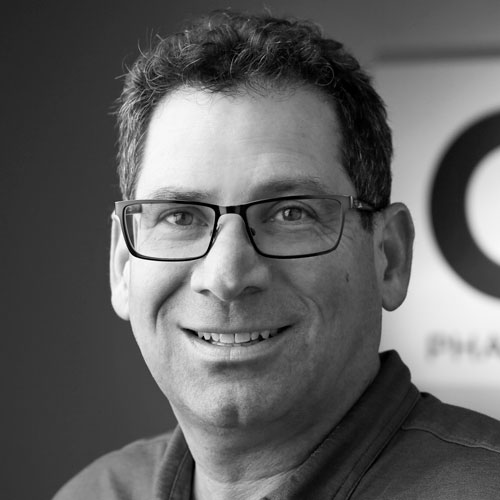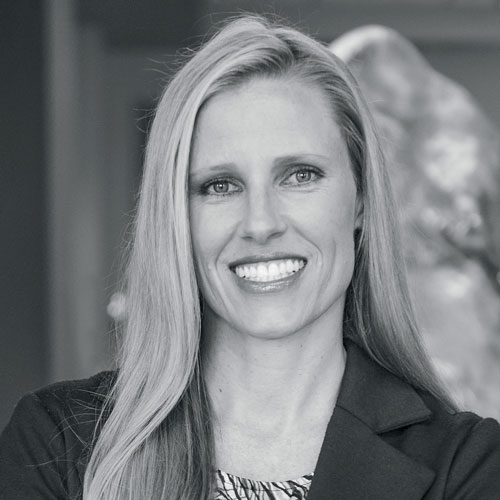Sharyn Alcaraz didn’t intend to become a healthcare lawyer. She began her in-house career working in digital media, but in 2004, she took a position as general counsel at Alta Healthcare System. It was a jarring transition—it was her first general counsel position, her first time at a turnaround company, and her first experience practicing healthcare law. Looking back, there was another concern to deal with: a lack of new lawyers entering the field.

At the time, most of the leaders Alcaraz worked with, including lawyers and senior counsel, had spent their careers in the healthcare industry. “You never saw new thought leaders coming in,” she says. “If you are going to innovate and modernize healthcare, you need new thoughts.”
Alcaraz is now vice president, legal at Peregrine Pharmaceuticals, a biopharmaceutical company. Although she has seen more lawyers pursuing careers in healthcare law in the past decade, the need for young, innovative attorneys is as great as ever.
Healthcare is an industry with endless demand. “At some point in their life, everybody’s going to need healthcare,” Alcaraz says. “Not everybody’s going to need a Cartier watch. Not everybody’s going to need an Xbox. But everybody’s going to need healthcare.”
Alcaraz wants to ensure that there is a robust pipeline of young healthcare lawyers ready to step into the ever-changing field. She reflected with American Healthcare Leader on what it takes to have success in the field today.
Look Through the Regulations
As a corporate generalist, Alcaraz entered the healthcare industry with a broad knowledge of the law, but the industry regulations added another aspect to each transaction. “In healthcare you have a full, vast, second body of law that you have to take into consideration,” she says.
Healthcare is one of the most regulated industries in the United States, and these regulations affect every aspect of the industry, from leasing transactions to corporate governance. “Healthcare law is an added set of laws through which everything must be viewed when you’re practicing your particular practice area,” she says. “I had to look at everything through a completely different lens.”
Incorporate Your Interests
The healthcare industry interacts with almost every other industry, and it requires practitioners of almost every type of law. “Every single aspect of what is normally practiced in the legal field is practiced in healthcare institutions and industries,” Alcaraz says.
Becoming a successful healthcare lawyer requires understanding the industry’s many regulations, but it also requires a broader understanding of law. Healthcare law is a lens to look through, but an attorney also needs to understand what they are looking at. “Find the area that you really like to practice and perfect the technical aspects of your craft,” Alcaraz says. “Then, layering on the regulations of healthcare won’t seem so overwhelming.”
Be Open to Exploration
After two years at Alta Health System, Alcaraz returned to the field of digital media. “I was pretty certain that I didn’t want to do healthcare,” she says. “That wasn’t the place for me.” But despite these initial doubts, Alcaraz joined a specialty pharmaceutical company a year after leaving Alta, and she has been in healthcare ever since.
It is important, she says, for young lawyers to explore the industry before deciding to pursue another path. “Take a look at what the industry as a whole can offer you,” she says. “If you’re interested, say, in real estate, why not look at real estate in the healthcare industry? If you’re interested in intellectual property, why not look at life sciences?”
As the healthcare industry continues to evolve, new sectors will grow more important. With the rise of telemedicine and the use of EHRs, cybersecuring becomes an increasing concern. “People look at healthcare as a dinosaur, prehistoric service. It’s not,” Alcaraz says. “There’s a lot of disruption that’s still happening now in the healthcare sector as a whole.”
Healthcare Is a Business
Before joining Alta Health System, Alcaraz didn’t think of healthcare organizations, such as hospitals, as businesses. “We think of healthcare law as a charitable pillar. It’s the healing, caretaking institution of our society,” she says. “It’s nevertheless a service business.”
Like any business, healthcare institutions must be self-sufficient, and the legal team plays a vital role in maintaining a company’s financial health. “You must be able to sustain yourself, even if you are not-for-profit,” she says. “You cannot lose money every year if you want to be an ongoing service to your community.”
A lawyer’s role is the same, regardless of whether the business they serve is providing cancer treatments or computer software: to help a client to be compliant and to structure and litigate deals correctly and efficiently, while achieving their overall mission and annual financial goals.
Remember the Mission
Healthcare may be a business, but it’s a business with an essential mission at its core. “It’s a business about people,” Alcaraz says. “I can’t think of a service industry that’s more about people than this one.”
In addition to helping the company to compliantly achieve its goals, healthcare lawyers have an added responsibility to the patient. Doing the best thing for the patient means being a good corporate citizen and following the rules that are put in place to protect them. “It’s always about the patient,” Alcaraz says. “That’s the best advice I’ve ever been given, and it’s really guided my helping my organizations to implement the regulations.”
It was this mission that drew Alcaraz back to healthcare law. “When I come home every day, I realize that I helped my employer either keep people alive, take care of them, or make their quality of life better,” she says. “I’m helping people every day.”
Photo by Joshua Monesson


